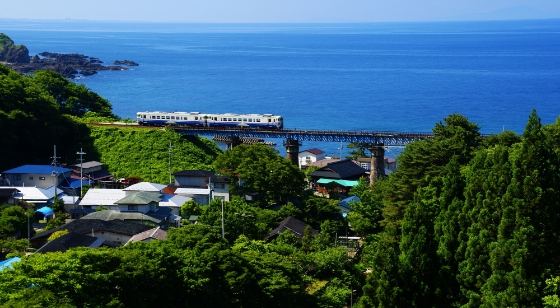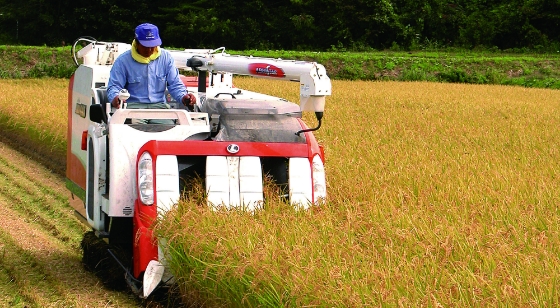I will show you some great sight in our town!
Contact: Happo Tourism Association http://www.happouta.jp/home/
Herbal medicines (shōyaku) have a distinguished history in Akita. In the early 1700s, the ruling Satake family of Akita Domain (now Akita Prefecture) began consuming an herbal cough medicine known as ryūkakusan. It was used privately by generations of the family until 1871, when the formula was purchased and became the foundation of the Ryūkakusan Company, Ltd. This nationally known company’s line of throat lozenges and other cough treatments is based on the traditional herbal ingredients now being grown at a special farming and processing facility run by the town of Happō.
Two of the key herbs are the roots of balloon flowers (kikyō) and blossoms of chamomile. These are among the 27 plants being cultivated at the Happō facility, which aims to provide a stable domestic supply of herbal medicine ingredients; until recently, many of the components, including balloon flower roots, were all sourced from China. The facility is also growing peony, another ingredient used in numerous medicines, but the plants take four years to reach harvest size.
Researchers at the facility are experimenting with a range of growing techniques—including plant spacing, age at harvest, and mulching techniques—to discover the most productive methods. They look for correlations such as whether the number of stems on a plant corresponds to the number of branches in its roots. The growers take painstaking tallies and measurements at harvest time and determine how to improve the next year’s cultivation.
Balloon flower roots are sorted, cleaned, and dried at the facility. Root pieces measuring at least 1 centimeter thick and 10 centimeters long are used for medicine, while smaller ones are consumed as an ingredient in pastas, soups, and hotpot dishes found in area restaurants. The roots are also combined with roasted brown rice to create a local blend of decaffeinated coffee, while chamomile and some of the other plants are used to make herbal teas. Several of these products are available at local Michi no Eki rest areas.
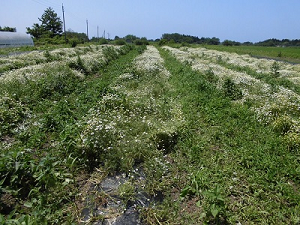
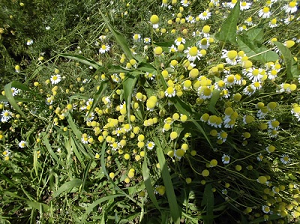
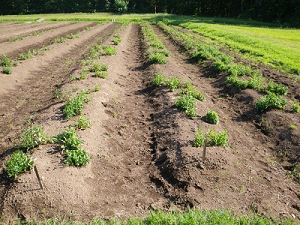
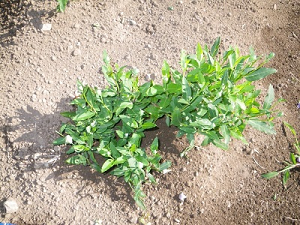
* This English-language text was created by the Japan Tourism Agency


